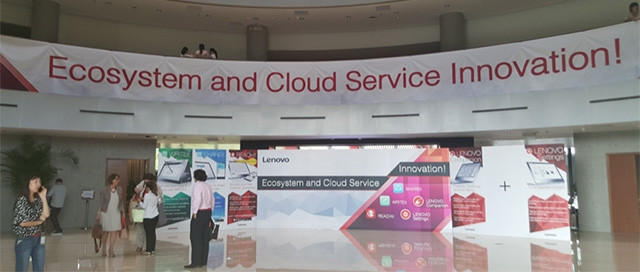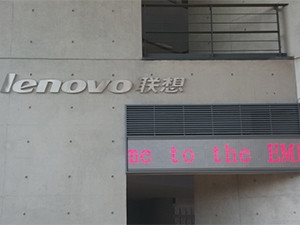
Sometimes you need to see it to believe it. This certainly was true for me when Lenovo invited me to head off to China to check out its offices, where I was promised I would see more than just a company that sells PCs and laptops.
Having spent the day at one of its office parks, I came to discover that Lenovo's range extends far beyond "just computers".
Lenovo by numbers
Lenovo boasts some serious numbers: Number one in the world in PC sales is no small feat for any company, but keeping that title for the past eight quarters is even more impressive. Lenovo is number three worldwide in server revenue, and number three in smartphones, selling 76 million units, which is an increase of 52% over the previous year. It is also number three in the world in tablet sales.
What does this mean in terms of revenue? For the fiscal year ended 31 December 2014, the company has earned US$14.1 billion in revenue, where 65% of revenue is from PCs, 24% from mobile and 9% from enterprise. This is a remarkable shift in the global company when considering that in 2013, PCs accounted for 81% of its bottom line. What is also interesting to note is that two-thirds of group revenue is now derived from EMEA, the Americas and Asia Pacific, verses less than half of revenue from outside China three years ago.
Clearly, the company is evolving and thinking beyond its Chinese roots.
Part of this success is owed to the fact that the company's top leadership is made of up of seven nationalities, allowing each executive to bring his/her localised country's input into the company. There doesn't seem to be a "headquarters" mentality, where every new concept must originate out of head office only. Each region contributes to Lenovo's success by acting locally and catering for its own market.
Motorola or Lenovo - which is it?
Having purchased Motorola, Lenovo now has two mobile brands on hand. Therefore, in order to avoid market confusion between the brands, Lenovo has segmented its markets based on the country it is operating in. In most of Europe, such as the UK, France, Germany, Spain, Holland, the Nordic regions and others, Lenovo will use its Motorola brand, assuming Motorola is the recognisable brand people will relate to. However, in other regions where Motorola was not previously available, only the Lenovo Mobile brand will be available.
Testing the box

The one department that stood out for me was the Lenovo Reliability Labs. This is a 4 000-square-metre facility spanning multiple floors, where each PC, and components in every conceivable configuration, is run through 34 different tests - beating the industry standard of 28 tests. The tests emulate six months of heavy usage of equipment, where sensors monitor everything from current to temperature behaviour (from minus-40 degrees Celsius to plus-60 degrees Celsius), to equipment failure.
In order to speed up certifications, Lenovo has added an analysis component to its lab, so when a component fails, the analysis team is able to inspect the component and understand why it failed onsite, instead of sending the component away for analysis, which delays compliancy certification.
What impressed me was the fact that Lenovo not only tests its computers, but also the packaging used to deliver the computers. The industry standard is to drop-test a computer from 1.5m, and while this is acceptable for the US market where computers are delivered via a delivery van, there are regions where equipment is delivered via military-graded trucks that are sent off-road and even delivered via donkeys to remote areas. These require a completely different set of stress tests. Recognising this, Lenovo has improved its packaging, allowing for a drop-test from up to 2m. This factor alone resulted in a favourable failure rate (1.7%) in 2000, compared to other brands in the same year, with a failure rate of 17%.
Amazing technology and systems are being used in this lab. However, due to confidentiality reasons, no photos were allowed.
Innovation never stands still
The common thread that runs through Lenovo is its "protect and attack" strategy. Lenovo continues to protect its core PC business, while attacking new avenues in mobile, enterprise and ecosystem/cloud business.
Innovation at Lenovo continues to drive the business, which is evidenced by the company taking home a record 77 awards at the Consumer Electronics Show, across every product category. At the Mobile World Congress, in Barcelona, in March, Lenovo and Motorola won a further 33 awards, proving that innovation at Lenovo truly doesn't stand still.
Share